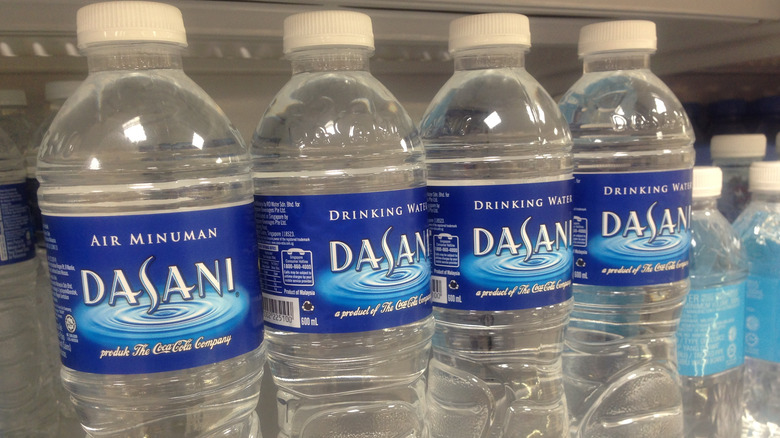Why Some Bottled Water Could Actually Make You Thirstier
We all know those people who will argue that Poland Spring water differs from Fiji Water. And, as it turns out, they are absolutely right. Some bottled water can actually taste different and even make you thirstier. Although Mashed has our own ranking of the best brands based on opinions and research, Time Magazine is here to tell you that both Dasani and SmartWater contain a handful of additives that lead to different reactions out of their consumers.
While the slew of chemicals, which include Dasani's magnesium sulfate and potassium chloride, and SmartWater's calcium chloride, magnesium chloride, and potassium bicarbonate, may look concerning to some, the outlet explained that the additives put into the water are naturally found in water, and that the quantities included in each bottle are quite low. Marion Nestle, professor of Nutrition, Food Studies, and Public Health and professor of Sociology at New York University, said in her book, "What to Eat," that the minerals found in certain water bottles offer "slightly salty or bitter flavors." And saltiness can lead to thirstiness.
Bottled water can expose you to potentially harmful chemicals
Even though you may get thirstier after drinking a bottle of water, you shouldn't be too worried about buying a bottle of Dasani at your local gas station. After all, the average sodium content for a bottle of water is 17 milligrams per liter (via Time Magazine), which is below the recommendation of 20 milligrams per liter or less from the Environmental Protection Agency (EPA). That said, there are some things you should be aware of before taking your next sip.
In a report shared by MBG Planet, it was noted that traces of phthalates, mold, trihalomethanes, and arsenic have been found in bottled water. And, while companies are beginning to use BPA-free plastic more frequently, potentially harmful chemicals are still present and can seep into the water if it's in heat or sitting out for too long. As The Guardian shared, phthalates have been linked to asthma, attention-deficit hyperactivity disorder, breast cancer, and obesity.

